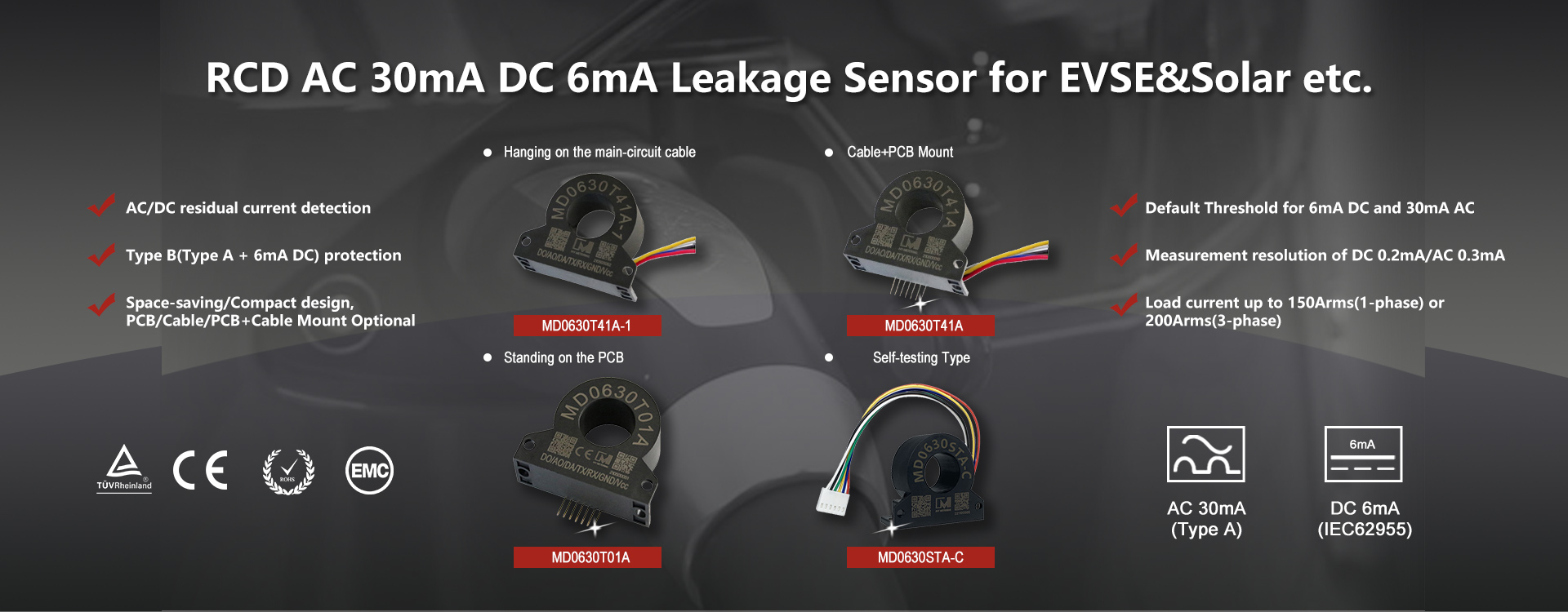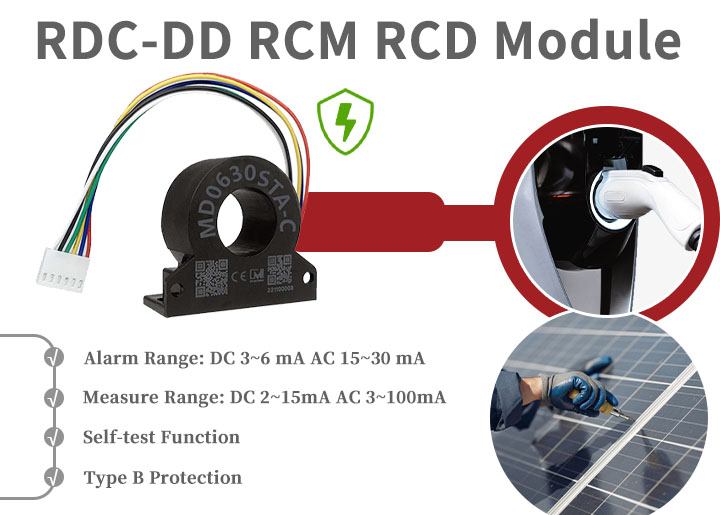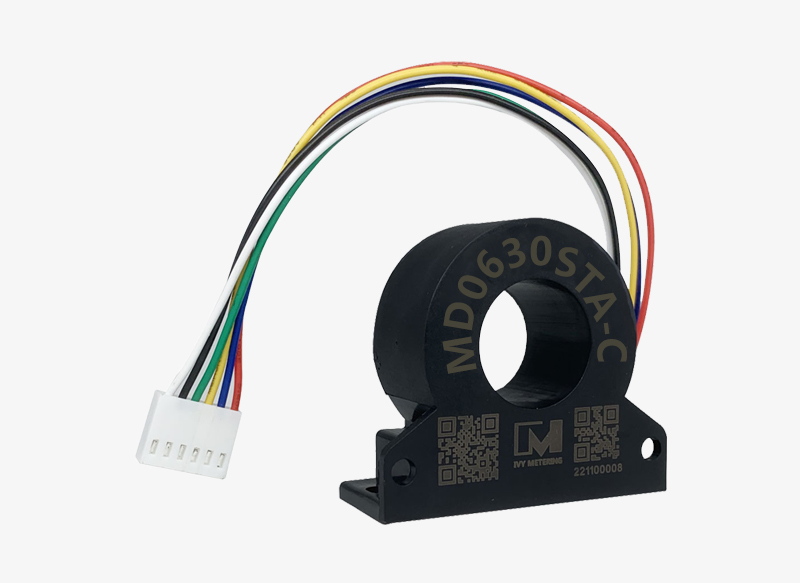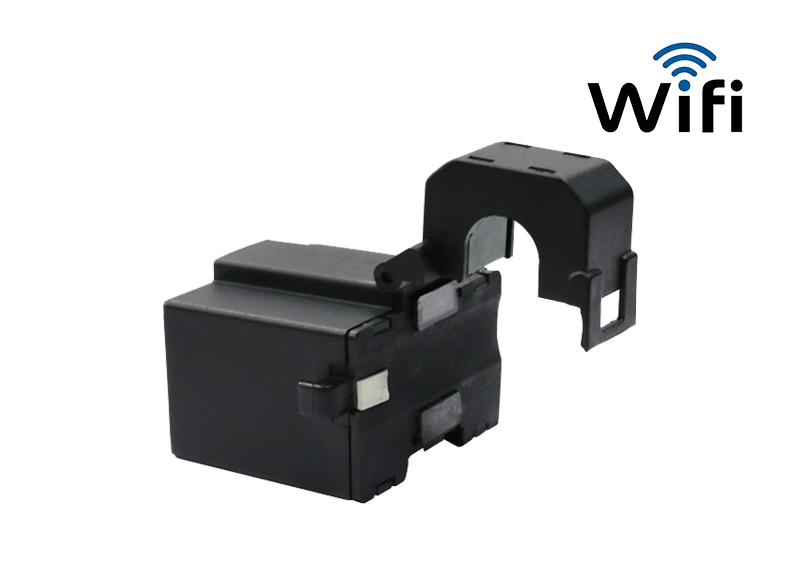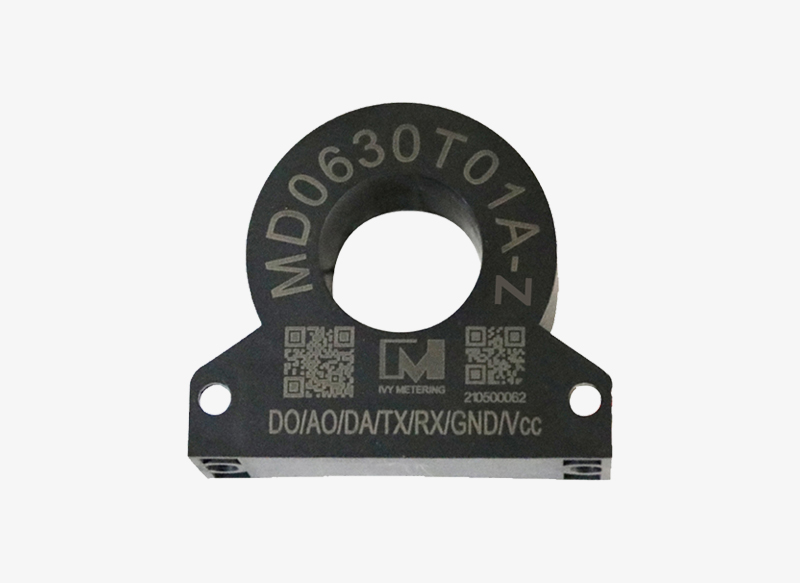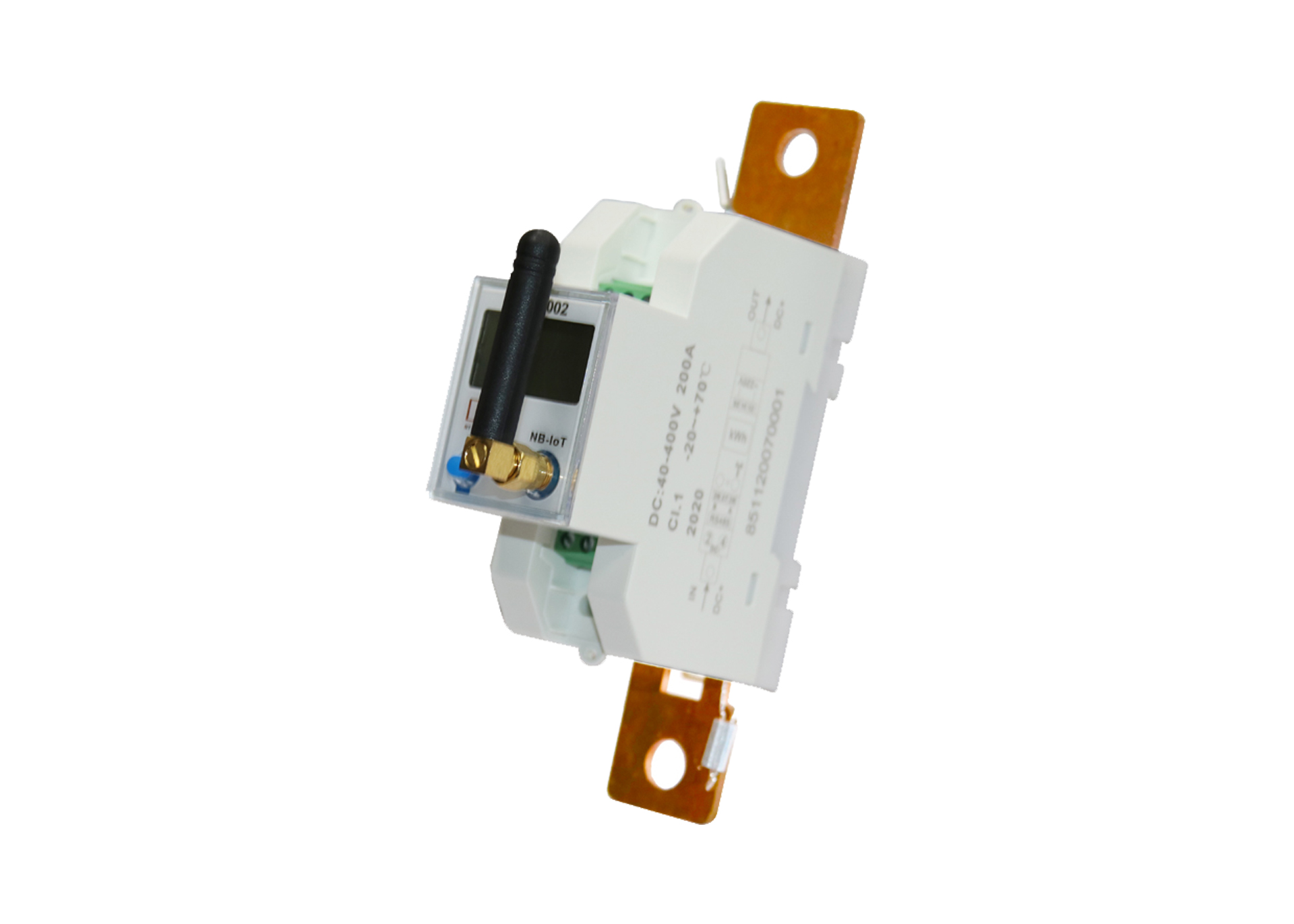Product Details
MD0630STA-C is an AC DC leakage current sensor(RCD/RCM Sensor) with the characteristics of high sensitivity, accurate measurement, small size, and integration. When a DC leakage current of 3~6mA or an AC leakage current of 15~30mA is detected, an alarm signal will be output. At the same time, it has a self-test function, which can be used to judge in real time whether the sensor is in a normal working state. If the sensor fails, the self-test output terminal will not be able to output a feedback signal.
It can not only detect AC fault current, DC pulsing and smooth DC fault current, but also sinus wave AC fault current at a high frequency up to 1kHz. IVY RCD sensors are optimized for fast, low-cost assembly, combined with the highest product and production quality. In addition to the use of charging piles. Also suitable for medical instruments, solar inverters, UPS, DC panels, smart home, industrial machines, IOT, power distribution cabinet etc. Provide more reliable protection. Protecting personal and electrical equipment safety.
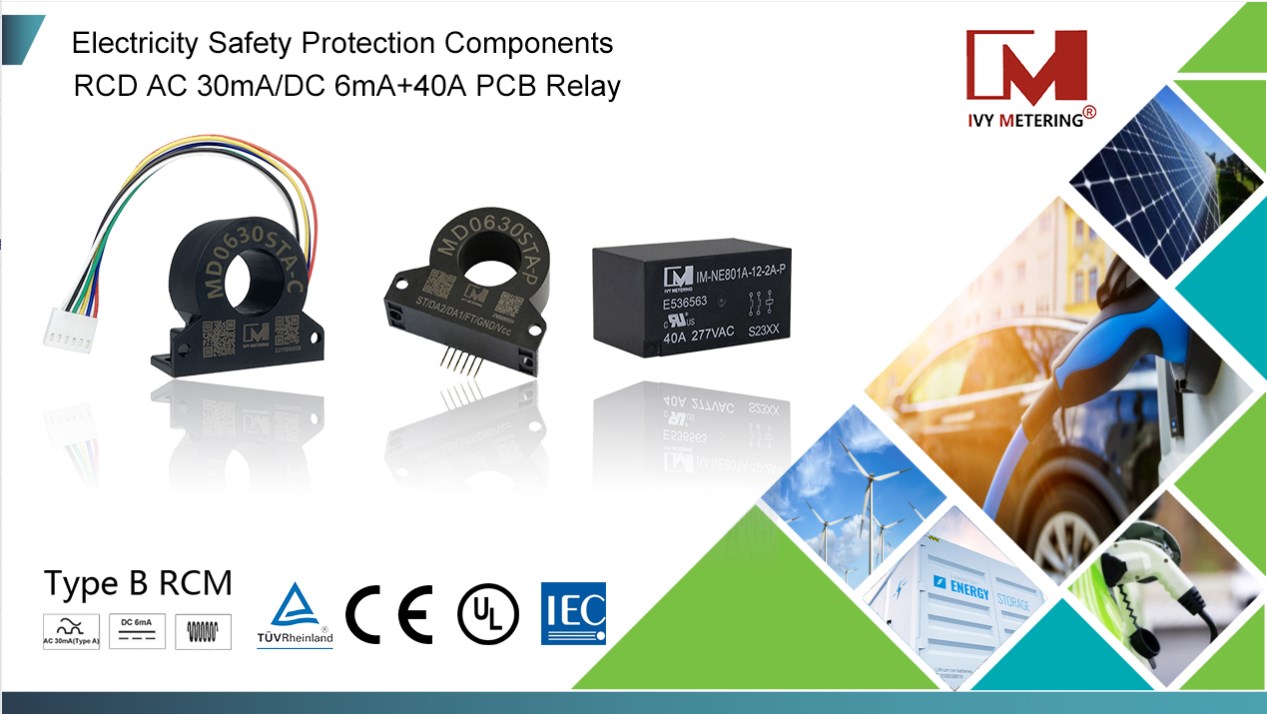
Product Advantages
DC 2~15mA/AC 3~100mA micro current detection
DC 3~6mA/AC 15~30mA Alarm (Needn’t Set)
With Self-test Function, Open Collector Alarm Output
Integrated Design, Cable/Horizontal Type Installation
Robust mechanical and electrical design suitable for harsh environmental conditions
Electrical safety at low cost (compared to RCCB type B)
Compliant with standard IEC 62752/IEC 62955 and UL 2231
Product Dimension
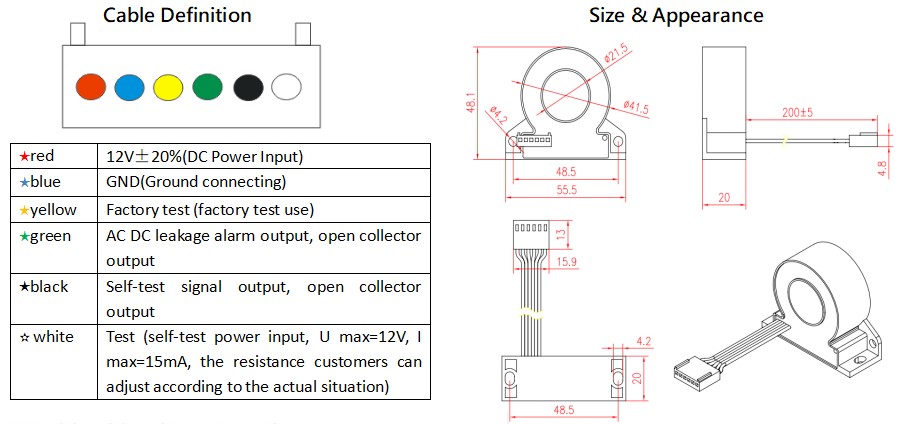
Product Applications
In electric vehicle charging if the DC fault current is greater than 6mA, it could change the characteristics of a Type A RCD due to its core saturation, resulting in the type A failing to trip and a lack of detection of the DC fault. In this instance, the risk of electric shock is increased, and safety is compromised.
Use type B RCD, which is suitable for AC and DC fault protection.
Use type A RCD and a DC 6mA sensor to provide a means of disconnection of supply in case of DC fault.
IVY type B RCD(type A + 6mA dc) enables compliance with the updated BS7671:2018 and reduces the cost of developing electric vehicle charging solutions, which is more cost-effective than using a Type B RCCB.







